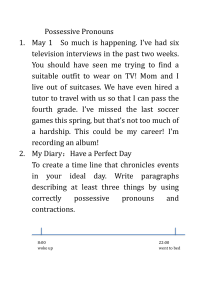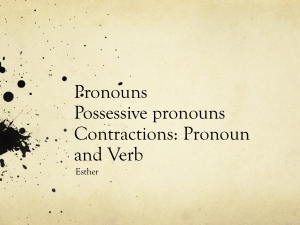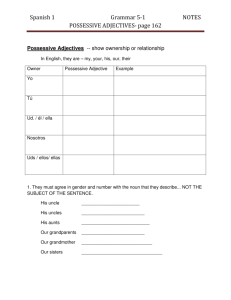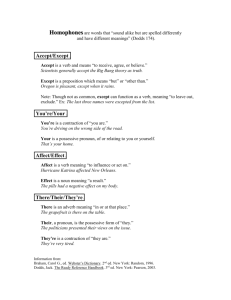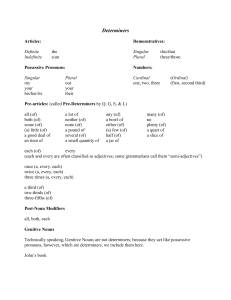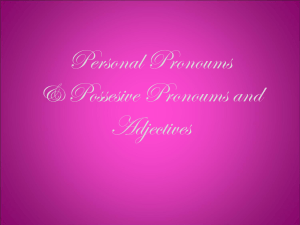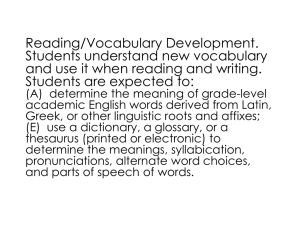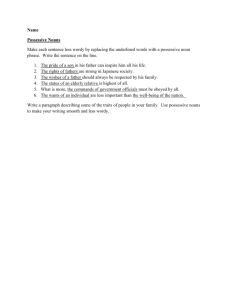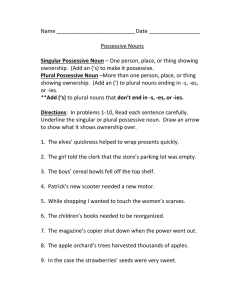Commonly Confused Words
advertisement
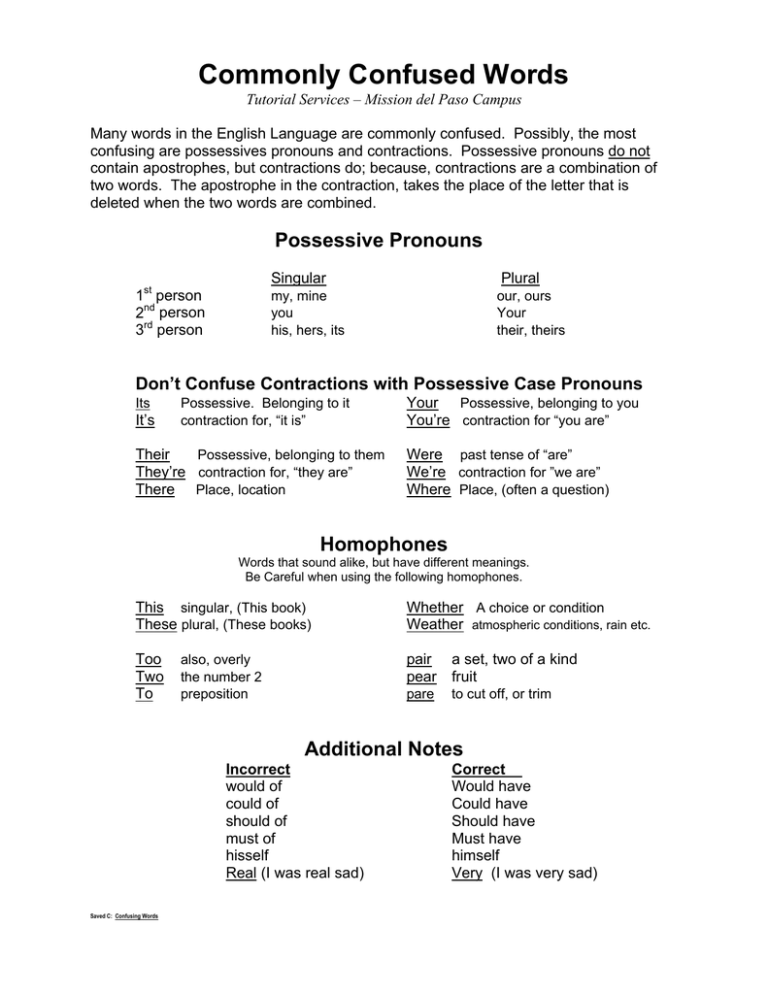
Commonly Confused Words Tutorial Services – Mission del Paso Campus Many words in the English Language are commonly confused. Possibly, the most confusing are possessives pronouns and contractions. Possessive pronouns do not contain apostrophes, but contractions do; because, contractions are a combination of two words. The apostrophe in the contraction, takes the place of the letter that is deleted when the two words are combined. Possessive Pronouns Singular 1st person 2nd person 3rd person Plural my, mine you his, hers, its our, ours Your their, theirs Don’t Confuse Contractions with Possessive Case Pronouns Its It’s Possessive. Belonging to it contraction for, “it is” Their Possessive, belonging to them They’re contraction for, “they are” There Place, location Your Possessive, belonging to you You’re contraction for “you are” Were past tense of “are” We’re contraction for ”we are” Where Place, (often a question) Homophones Words that sound alike, but have different meanings. Be Careful when using the following homophones. This singular, (This book) These plural, (These books) Whether A choice or condition Weather atmospheric conditions, rain etc. Too Two To pair pear a set, two of a kind fruit pare to cut off, or trim also, overly the number 2 preposition Additional Notes Incorrect would of could of should of must of hisself Real (I was real sad) Saved C: Confusing Words Correct Would have Could have Should have Must have himself Very (I was very sad)
